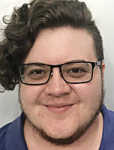
Artistic Significance: Determining our own answer to each question
The state of the election and the tensions around it this week have me thinking about one book series in particular.
I want to make it clear upfront, I’m not stating an opinion on the politics in this book, but I have to address them a little bit to explain the setting.
I think regardless of whether or not you agree with the politics in this piece of fiction, it’s an interesting exploration of a world just slightly different from our own where the author really cared about every potential outcome from a decision.
The “Unwind Dystology” series by Neal Shusterman follows a group of teenagers set about 100 years in the future. These are my generation’s grandkids or great-grandkids.
This is a post second Civil War U.S., which my generation fought over reproductive rights.
It is a war that nobody won. After an unspecified period of fighting, everybody got tired and came to a bad compromise.
Fetal abortion is illegal, but it came with two main caveats: the storking clause and unwinding.
Under the storking clause, if you’re unable to care for a child you have, then you can leave the baby on a stranger’s doorstep, and as long as you’re not caught, that family now is legally responsible for that baby.
Or, if you come to regret the decision to have a child, between the ages of 13 and 18, they can be retroactively aborted, or unwound. This is a medical procedure where 99.9% of the teenager’s body is used for transplants.
In theory, this keeps their consciousness alive, but spread out among the people who received transplants. They enter a “divided state.”
The series follows three teenagers who run away from their unwinding.
They meet up with a variety of people who have been impacted by unwinding through receiving a transplant, being listed for it, helping to write the law that made it or developing the technology used for it.
This isn’t depicted as a perfect society.
The rate of teenage parenthood is high, there’s still an illegal organ trade going on and terrorism is flourishing.
Terrorism is so bad at this point, it is illegal to clap because suicide bombers are putting explosives in their bloodstream and detonating by clapping.
While it’s hard to pull out a dominant theme in the series, I think the main thread among everything is that no issue is black and white.
Even though it is terrorism, is there some level of justification when you bomb the place unwinding takes place?
Is unwinding bad when it means that there’s no waiting list for an organ transplant? Or, that, if you can pay for it, you can get surgery to learn a new language?
Would it make a difference if these are consenting adults who signed themselves up to be unwound rather than teenagers listed for it by their parents?
The storking system may benefit the parents who aren’t able to raise a child, but it doesn’t take into account the position this other family is in or the bullying that child may face for being “unwanted.”
New technology meant transplants now have a low failure rate, but also allowed society to start unwinding. Does the inventor have some level of blame in how her invention is used?
The books don’t answer these questions, they aren’t meant to. They show a world and give you multiple sides to the questions, so you can decide your answers.
My answers might differ from yours, and that’s the point.
Nothing has a simple answer, a right or a wrong, but we need to be informed about what’s going on in order to determine our own answer to the question.
Information is a tool that we use in day-to-day life and when filling out our ballots.
We’re all just doing what we think is right based on the information we have. That doesn’t mean shutting down additional information or that we can’t have a civil discussion about things we disagree on.
One of my favorite chapters in the first book has four characters locked in a box together discussing unwinding and when do you become a person.
Every one of them has a different opinion, but they talk about it and listen to the perspectives the others express.
Do any of them leave that box at the end of the chapter with a new opinion? We don’t really know, but they at least left it with a better understanding of opinions that aren’t theirs.
Michael Shine is a staff writer at the Daily American Republic. He can be reached at mshine.dar@gmail.com.
Posting a comment requires free registration:
- If you already have an account, follow this link to login
- Otherwise, follow this link to register
